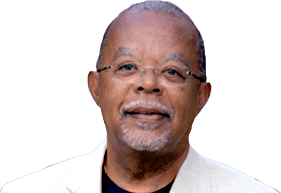Dr. Ira Davis
As a thirty-eight year old man, I can recall first learning about the accomplishments and struggles of African-Americans in a major way when I was assigned to do a Black History report in sixth grade. Before this point, I had heard of Dr. Martin Luther King, Jr., but I do not know if I had an understanding of the magnitude of his contributions as well as others to the history of Black people in America. In that particular assignment, I was assigned to a report on twenty-eight prominent Blacks Americans. My interest in the general subject of history had need sparked as well so I welcomed the challenge. As I researched, the picture of the arduous sojourn of Africans in America became shockingly clear. After this, I engrossed myself in everything Black.
Most of my cultural education came largely outside of the classroom. This was during the era of the conscious hip-hop movement which was exemplified by groups like Public Enemy (PE) and Boogie Down Productions (BDP). My wardrobe included a Black-themed t-shirt, African medallion, and a dashiki. As a result, I had to be properly self-educated when I would be quizzed by family members and others as to their meaning. My mother bought me supplementary material to quench my insatiable appetite for all things Black. I used my allowance money as well to buy books from the Black section at one of the local book stores.
In eighth grade, I had a strong Black male social studies teacher that boldly asserted “I am not anti-White…I am just pro-Black!” I can recall preparing a Black history report that was over one hundred pages. Within the last decade, I saw my former eighth grade teacher and he told me that he kept my Black history report as a model project until retired. My high school years were a time of even more cultural awareness and self-enlightenment. During these years, the predominantly black high school that I attended hosted African authors, the Black Liberation Flag, Kwanzaa programs, the Nation of Islam, as well as an amazing Black History program each year. In the community, I found influence from Nuwabian Nation of Moors literature, my visits to the local Nation of Islam mosque under the leadership of the Honorable Louis Farrakhan, and the subscription I acquired to the Final Call newspaper at age 14. By my senior year in high school I had co-founded the Young Black Leaders Association (YBLA), which was an amalgamation of Black teenage leaders from all public and some of the private high schools in my hometown. My love for Black History remained as I matriculated through college earning a minor in African American Studies.
Probably the two most important books that I ever read were the “Autobiography of Malcolm X” and “Roots: The Saga of an American Family”. The former would influence my religious preferences and the latter would send me on a continuing twenty-two year search to discover my familial origins which would culminate in performing DNA analysis based on the Dr. Henry Louis Gates produced documentaries.
As a secondary educator, I have taught African-American History in the public school setting as well as in my local community. While I feel that it is important to teach Black History in the public school setting, I feel that it is often sanitized and placed and packaged in a curriculum that was designed by those who conquered and historically oppressed Black people in America. In my opinion Black History should be taught primarily at home in an informal setting. The best formal setting for the edification of Black youth in their own history would be in an independent or private school setting.




